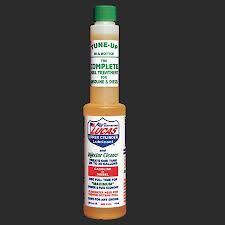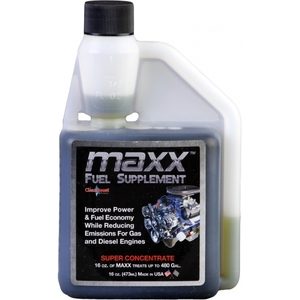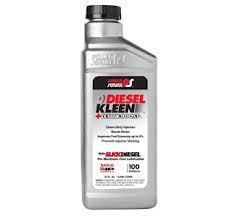Diesel Fuel Additive Review Part 2
“In Part 1 of this article, we talked all about how a diesel fuel additive can help solve some of the most common diesel engine problems. In this continuation, we compare three of products on the market to get a better understanding of the functions and benefits of this technology.“
 Lucas Fuel Treatment
Lucas Fuel Treatment
This gasoline and diesel fuel additive is made out of a blend of oils and additives free from any solvents. Formulated to mainly increase fuel mileage and power, it also helps lessen emissions by encouraging a better combustion process. Its unique blend also utilizes a high detergent action which pushes the engines to work at maximum efficiency. This diesel fuel additive also promises to lubricate and clean the fuel system, increase miles per gallon by burning off excess exhaust emissions, and prolong the life of injectors and pumps.
Consumer reviews about Lucas Fuel Treatment show that this diesel fuel additive meets its promise of bumping up the miles per gallon (mpg). Apparently this is especially noticeable on the middle aged engines which can be a great magnet for problems. It is commonly also being praised for being a very good upper cylinder lube. This is very important especially after mandates about the amounts of ethanol being increased in diesel fuel. Without proper lubrication, ethanol can dry other parts quite easily because of its lack of natural lubricating properties. This brand of diesel fuel additive was claimed to be pretty useful when it comes to this department.
Despite the noticeable changes on the mpg and being a good lubricant, however, observations about this additive’s performance critique its ability to actually clean the engine. The increase in mpg cannot be directly attributed of the engine getting cleaner but due to the lesser friction in between parts due to its lubricating properties. This can be claimed from the fact that this diesel fuel additive does not have any solvents which are very effective cleaners. Thus, using Lucas fuel treatment may require the user to buy a separate product to take care of engine cleaning.
Power Service Diesel Kleen® + Cetane Boost
This product from the agri-diesel industry is made with powerful fuel injector-cleaning detergents, Cetane boost and Slickdiesel® lubrication for premium fuel lubrication. Benefits of this product include cleaning up dirty injectors and boosting Cetane up to 6 numbers. This enables the engine to run smoothly and lessens power lags during low temperatures.
It also lessens fuel consumption by up to 8% so that fuel savings are actually greater than the cost used in buying the additive. Just like other diesel fuel additive products, moreover, Power Service boosts power and reduces need for downshifting even with high loads. It also promises maximum fuel lubrication and protects pumps and fuel injectors from the accelerated wear they commonly get from Low and Ultra Low Sulfur Diesel fuels.
Reviews about this diesel fuel additive are positive at most. According to those who have used it, the increase on their MPG was really noticeable. They have also noticed that their engines start faster and work smoothly as well. It is also has decent lubricating properties that prolong the fuel pumps and injectors. The only problem is that there are people who also say that they didn’t notice the product’s promised boost on cetane at all.
 CleanBoost® Maxx™ Super Concentrate Fuel Supplement
CleanBoost® Maxx™ Super Concentrate Fuel Supplement
Just like the other two diesel fuel additive brands, CleanBoost® Maxx™ promises to provide better engine performance and boost fuel economy. Its super concentrate formulation also helps reduce emissions and excess air requirements.
The way this product increases combustion efficiency is by reducing corrosion and fouling to improve heat transfer and minimize equipment operations. In terms of being a lubricant, tests conducted on this diesel fuel additive show that it offers a large increase in lubricity and is effective in protecting the fuel system and injectors. ASTM D-6079 results also show that this diesel fuel additive offers a large reduction in friction over diesel alone, so that engine life and fuel system components are increased.
One of the main highlights of this EPA registered product is its capacity to take care of carbon build-up or deposits by specifically liberating the fuel’s energy in boilers and engines for a better combustion process. This way, the formation of carbon deposits is minimized and boiler performance improves. It also promotes the combustion of condensed tar which is a result of incomplete combustion. In addition to this, slagging, cold-end corrosion, and soot formation are also lessened as well.
Moreover, tests on this fuel supplement have proven that it can reduce CO emissions by 10 percent, particulate carbon by 26 percent, and HC emissions by 9 percent. There were no reported increase in NOx emissions and combustion efficiency was boosted by 0.4 percent. It does all this while also reducing overall fuel consumption by 3 to 5%.
This product, however, is not designed to affect the Cetane Index of diesel fuels. Instead, it increases the BTU so that the fuel can deliver more power per gallon.
Conclusion
From the reviews and comparisons above, all three products provide the user benefits over running diesel fuel alone or un-treated.
While Lucas Fuel Treatment does increase the MPG and has good lubricating properties, it may come up short in its cleaning properties so users may need to purchase a separate product to take care of this component. Power Service is more multi-purpose with its ability to increase the MPG, keeping the engine clean, and improving lubricity. However, it may lack in its promised Cetane boosting properties, even though it’s one of the product’s highlights.
CleanBoost® Maxx™ not only covers everything the other two products provide but also offers another critical benefit. Its meticulous processes take care of carbon deposits which are a primary problem for engines and are not offered by the other diesel fuel additive brands. While it may not provide increased Cetane levels, it compensates by offering a bump on the fuel’s BTU in return. For this reason, CleanBoost® Maxx™ is often a crowd favorite.
About the Author
Tech Guy
Automotive enthusiast, passionate about Jeeps, hot-rods, turbos, performance, efficiency, diesels, fuels, high performance oils, additives and anything with an engine.


